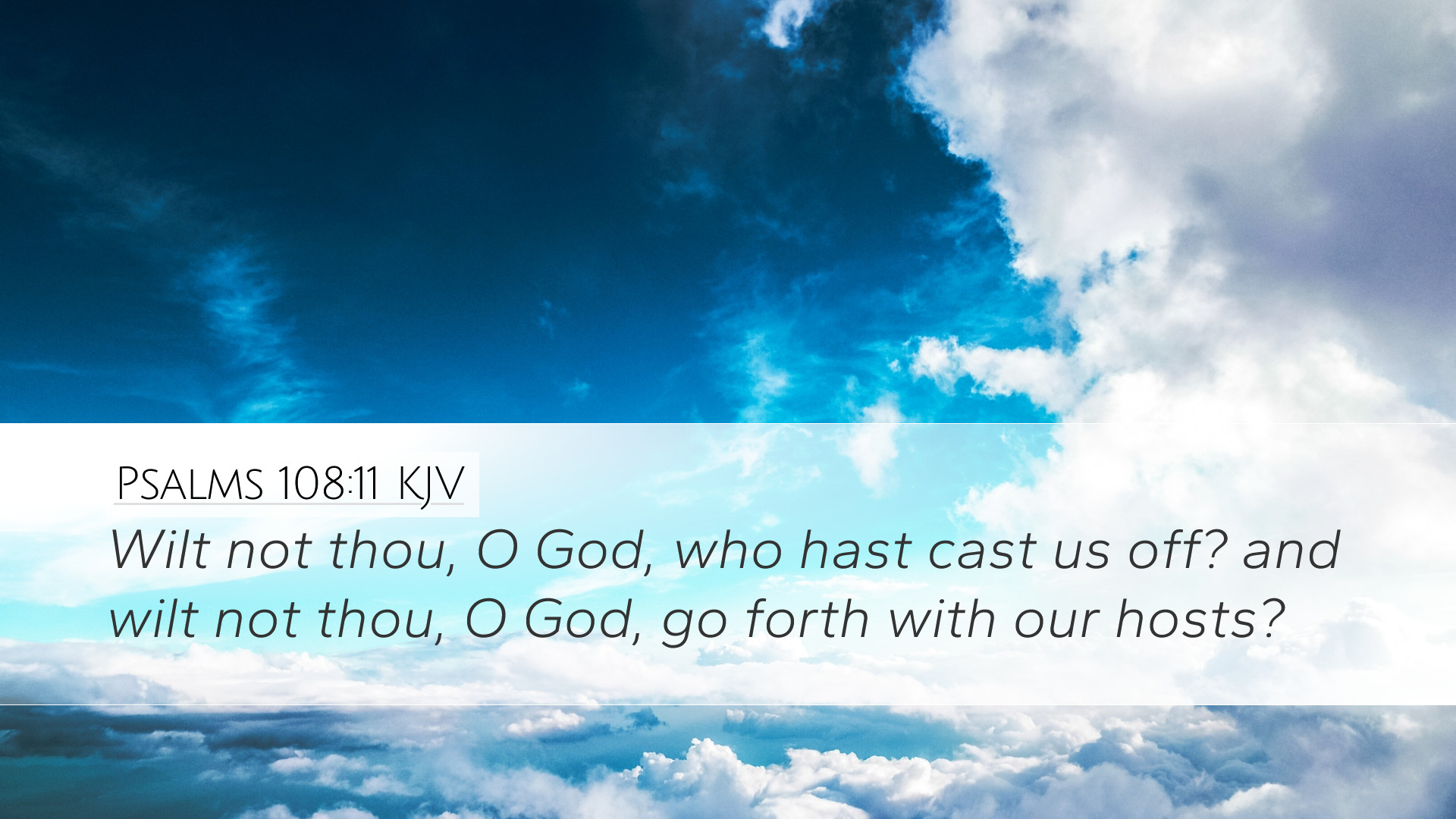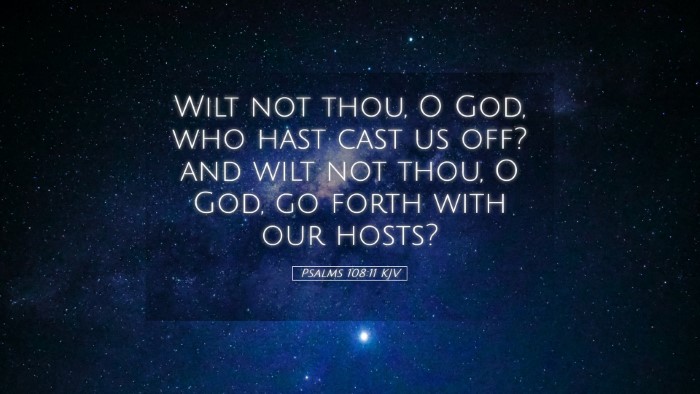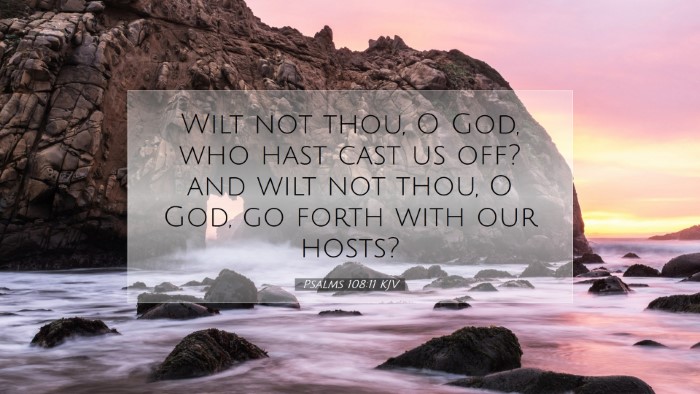Commentary on Psalms 108:11
Psalms 108:11 states: "Give us help from trouble: for vain is the help of man." This verse succinctly expresses the psalmist's plea for divine assistance in the face of adversities, emphasizing the futility of relying solely on human strength and wisdom. Below is a compilation of insights from public domain commentaries.
Contextual Overview
The psalm is a communal lament with elements of praise. It reflects the hearts of individuals who are part of a nation facing challenges, and the need for the power of God is paramount. By positioning this plea amidst the acknowledging of God’s steadfast love and truth, the psalmist anchors his request in the covenantal relationship between God and His people.
Insights from Matthew Henry
According to Matthew Henry, the psalmist recognizes that external help is often unreliable. He sharply contrasts human help with divine intervention. Henry states that while 'man may be a helpful companion in many troubles, true and effective help is divinely orchestrated.' He emphasizes that the believer should seek help from God first, asserting the limitations of human resources in spiritual warfare and daily struggles.
Henry also points out the importance of unity in seeking divine help. The phrase "give us help" indicates a collective appeal, suggesting that prayer must not only be individual but also communal. In this context, the psalmist advocates for the church to come together in times of trouble, underlining the greater power in unified faith-filled actions.
Insights from Albert Barnes
Albert Barnes elaborates on the notion of "help from trouble," noting that trouble, in this sense, could refer to various forms of distress—spiritual, emotional, and physical. Barnes emphasizes that the psalmist acknowledges his grave situation and the need for aid that transcends human capability. He argues that recognizing one’s limitations is the first step toward receiving divine help.
Barnes further explains that the phrase "for vain is the help of man" serves as a reminder that human aid can be fleeting and insufficient for deeper needs, such as salvation and deliverance from sin. He insists that reliance on God must come with the understanding that human efforts have limitations, and the believer must ultimately place trust in God’s intervention.
Insights from Adam Clarke
Adam Clarke comments on the phrase "give us help from trouble." He suggests that this is not merely a plea but a declaration of faith in God’s capacity to help in times of distress. Clarke interprets the term "trouble" broadly, encompassing both personal struggles and communal crises faced by the people of God.
Clarke emphasizes an essential theological point regarding "the help of man," asserting that while God might use people as instruments of His aid, the assurance of salvation, healing, or restoration must always return to God’s power alone. He asserts, "It is through God's strength that real help is offered, and without turning to Him, all human efforts are rendered futile."
Theological Reflections
This verse invites theological reflection on the nature of help and deliverance. It raises critical questions about the sources of strength we ascribe to in our lives. For pastors and theologians, the urgency of the psalmist's cry can serve as a powerful reminder to direct congregational prayer towards God, teaching that true deliverance originates from Him.
In a world often leaning towards self-sufficiency and human wisdom, this verse advocates for a return to dependence on divine wisdom. It encourages students of the Word to delve deeply into understanding God's nature as a helper in times of need, enabling a more profound grasp of faith as one that actively seeks divine intervention rather than mere human assistance.
Practical Implications for Ministry
-
Promote Prayerfulness: Foster a culture of prayer within congregations, reminding believers of the importance of seeking God’s help continuously.
-
Teach Dependency on God: Develop teaching materials that address the futility of relying solely on human abilities while emphasizing God's omnipotence as the ultimate source of aid.
-
Encourage Community Support: Instruct the church community in collective prayer and support, reinforcing the notion that together, they call upon God for help.
Conclusion
Psalms 108:11 serves as a crucial reminder for both individual believers and the collective body of the church, pointing to a God who delights in being our refuge in times of trouble. As elucidated by the commentaries of Matthew Henry, Albert Barnes, and Adam Clarke, we are encouraged not to place our trust solely in human efforts, but rather to continually seek divine assistance, knowing that true help only comes from the Almighty.


